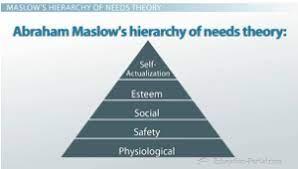
Physiological Needs and Governance By Prof. Sabitu Olagoke
- By solomon2day
- On 20/05/2021
- Comments (0)
- In The People Talk
 Nigeria began to face the challenges of physiological needs since 1973 when the government of the day resorted to importing rice and cassava to make up for the production seeming lapses as it began to affect our Gross Domestic Product and exporting index with regards to agricultural proceed need will essentially spread to all spheres of human need.
Nigeria began to face the challenges of physiological needs since 1973 when the government of the day resorted to importing rice and cassava to make up for the production seeming lapses as it began to affect our Gross Domestic Product and exporting index with regards to agricultural proceed need will essentially spread to all spheres of human need.
Our neglect of the agriculture sector, particularly, forestry, livestock, and farm produce as we diversified with 80 percent focus on oil brought in the era of urbanization, but minus rural integration.
Unfortunately, the urban cities were not well managed and there was a mass drift of the people from the villages to overpopulate the yet-to-be-standard urban cities, thereby causing overcrowding for emerging diseases to surface.
Merit considerations and the dignity of labor no longer exists, rather nepotism is the trend.

In a general term, Maslow's hierarchy of needs becomes difficult to operationalize in rearing children, natural nurturing of adolescents, and self-desire realization for the society to benefit from the ripple effect on our growth and development profile which is presently poor, making Nigeria become a mere talk shop rather than a place where we walk the talk. The foundation of Maslow's hierarchy of needs is physiological needs spreading over food, clothing, and shelter. The country's hides and skin industry has gone into extinction, same goes for the paper industry. Presently, the country imports toothpicks.
The refineries are non-functional, that is why the subsidy challenge persists. The education sector remains underfunded when compared with the benchmark OF 26 percent specified by UNESCO.
This is trailed by a high rate of unemployment and insecurity. The re is also the issue of obsolete and deteriorated facilities.
Let the government work for the society to imbibe the message of the focus of several opinion leaders.
Nigeria Governance Government Prof. Sabitu Olagoke








